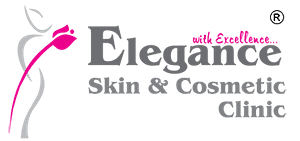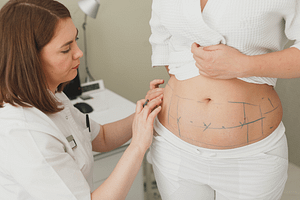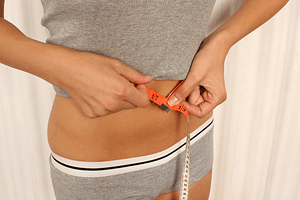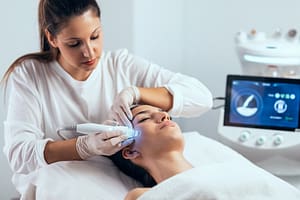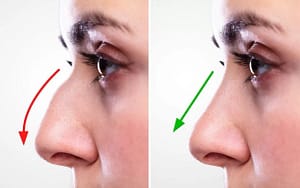There are different types of patients who come to my clinic, and some of them say, “I have lots of acne or pimples on my face, Doc. What should I do?” and some of them say ” Doc! I don’t have lots of acne or pimples, but I have huge acne and it hurts a lot. ” Do something, Doc!
If you are one of them and tired of trying home remedies and over-the-counter (non-prescribed) acne products, then you should stop right now. Firstly, you have to visit a dermatologist near you and you have to go under clinical treatment for acne. Here in this blog, you are going to learn about clinical acne treatments, and some of them are also going to help you with acne scars.
Firstly, let’s have a quick look at how acne occurs. Acne is a common skin condition that occurs when pores get clogged with dirt due to the secretion of excess oil(sebum). It also occurs due to an unhealthy lifestyle and hormonal imbalance. Effective clinical treatments are the key to healing acne and acne scars.
In this blog, we have covered types of clinical treatments you should know about:
Topical treatment
Oral medication
Laser therapy
Chemical Peels
Drainage and extraction
Steroid injection
Topical Treatment
Topical treatment is an effective treatment that is used for acne. Topical treatments can penetrate the skin and clear out acne from deep down. In this treatment, patients have to apply prescribed medication to the particular area where acne is or on the entire face.
Several forms of topical medication are available, such as gels, creams, solutions, foams, pads, and lotions. Dermatologists will recommend different types of topical treatments based on your acne condition and skin type. The most common topical treatments are mentioned below:
Retinoids:
Retinoid acid and tretinoin are one of the most common topical treatments used for acne. Retinoids are vitamin A derivatives that are available in gel, cream, and lotion forms and are used for moderate acne. It directly affects the growth of cells, which causes an increase in cells’ ability to unblock the pores.
In the beginning, acne might get worse because it might start working underneath the pimple.
It might take 6–10 weeks( only if you are applying regularly) to show the results. Retinoids and tretinoin are available both ways, over the counter and by prescription. But you take it under the guidance of a dermatologist. Topical retinoids might increase your skin’s sensitivity to the sun. They can also cause skin redness and dryness, especially in people with darker skin.
Azelaic acid and salicylic acid:
Azelaic acid is used for mild to moderate inflammatory acne and also helps with hyperpigmentation. It is a naturally occurring acid produced by yeast and has antibacterial properties. 20% of azelaic acid is safe to use for acne treatment, and it is available in both gel and cream form. The skin might be affected by redness and irritation.
Salicylic acid might help prevent hair follicles from getting clogged, and it also helps to correct the abnormal shedding of the skin. Salicylic acid is used for mild acne, and it is available as both face wash and leave-on products. Studies show that its effects are limited and it does not have an impact on sebum production. Side effects are rare, but you might have skin irritation and minor skin discoloration.
Benzoyl peroxide:
Benzoyl peroxide is used for mild acne and it is the most effective antiseptic as it destroys bacteria present on the surface of the skin, which helps to reduce acne. It is available in many forms, such as cream, gel, foam, and lotions. As a side effect, it might cause redness, irritation, and dryness to the skin.
Topical Antibiotic:
Topical antibiotics are used to clear acne-causing bacteria from the skin surface. They also reduce inflammation of the skin. There are several types of topical antibiotics available, such as gels, creams, lotions, serums, pads, etc. Topical antibiotics have a limited ability to penetrate the skin and also have a mild indirect effect on cosmogenesis. Topical antibiotics should not be used alone; they should be combined with retinoids, Benzon peroxide, or another dermatologist-recommended treatment.
(Important Note: A topical treatment has to be prescribed by the dermatologist as it may cause damage to the skin if used more than the required amount.)
Oral Medication:
The oral medication works effectively on moderate to severe acne. Oral medications work systemically; they absorb medication through the body and affect it from the inside. Oral medications are available only with a doctor’s prescription.
Dermatologists recommend only oral medications after knowing your medical history, causes, and the severity of the acne. Many problems trigger acne, and depending on the causes, medication will be prescribed. Some of the common medications that are prescribed by dermatologists are mentioned below.
Antibiotic:
Oral antibiotic medication has been used for many years for acne treatment. It works by reducing propionibacteria, which is responsible for acne breakouts. It also decreases the inflammation of the skin. A dermatologist usually suggests oral antibiotic medication with topical treatment when gel or creams don’t show results alone.
Contraceptive pills:
Contraceptive pills(birth control pills) are frequently used to treat women’s acne. It helps to cure acne that is caused due to hormonal imbalance. These pills help to reduce oil gland (sebum) secretions by suppressing androgen hormones. It is most commonly suggested with topical treatment. Contraceptive pills are not recommended for pregnant women with acne.
Anti-androgens:
Aldactone (spironolactone), an anti-androgen medication, is only prescribed to adult women.It is not specifically for acne treatment, but it is used to balance hormonal fluctuations, which is the reason behind acne. It prevents the effect of androgen hormones on the oil-secreting glands. Possible side effects might include painful cramps during periods and breast tenderness.
Isotretinoin:
Isotretinoin is also known as Accutane, which is a super-powerful drug in the retinoid family. It is a powerful acne medication and it is considered the best treatment for severe acne as it never fails. It minimises the size of the sebaceous gland (oil-producing gland) so it produces less oil(sebum).
(Important Note: Oral medication must be taken under the dermatologist’s guidance. If not, then it does more harm than good. )
Laser Therapy:
Laser therapy helps to reduce acne infections. Laser light helps destroy the number of bacteria present on the surface of the skin that causes acne. This will require more than one setting.
Chemical Peels
A chemical peel is one of the best treatments for acne and acne scars as it removes the top layer of the skin’s surface. This treatment requires repeated applications of a chemical solution, such as glycolic acid, salicylic acid, or retinoic acid. This treatment is used for mild acne. It also improves the appearance of the skin, though the changes may not last for a longer period of time and may require repeat treatments.
Drainage and extraction
Drainage and extraction are the most common clinical procedures to treat acne. This procedure involves sterile instruments to remove large pimples, cystic acne, whiteheads, and blackheads. Acne drainage and extraction are usually recommended when other acne treatments fail to clear the skin. This treatment takes time and may cause some pain during the procedure.
Steroid Injection
The dermatologist injects corticosteroids directly into the acne cyst to reduce the inflammation, swelling, and pain of acne. This treatment is usually used for swollen, tender acne nodules the acne cysts that are not responding to usual acne therapy. It is a very effective treatment and is usually known as a cortisone or steroid injection shot, or a cortisone injection.
Final Verdict
As you have read in the blog that the best way to cure acne is to take clinical treatment. Clinical acne treatment is essential as acne has to be treated under the guidance of a dermatologist.
The main purpose of this blog is to educate you about the common clinical treatment for acne. Only the dermatologist can decide which treatment is best as it requires some clinical tests and examinations. You can consult the best dermatologist that is nearby for acne treatment.
If you are from Ahmedabad or near Ahmedabad, then you can visit Elegance skin and cosmetic clinic in Ahmedabad. Elegance skin and cosmetic clinic is one of the renowned clinics in Ahmedabad. Expert dermatologist Dr. Shruti Patel has successfully treated 1500+ patients with acne and is giving out the best results.
Visit our website to know more about us:
To book an appointment:
